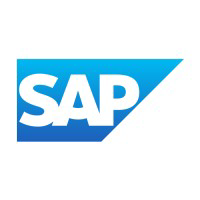Best Retail Software
What is Retail Software?
Retail software includes a wide range of applications designed to help businesses manage their operations, streamline processes, and enhance the customer shopping experience. These tools cover various aspects of retail, from point-of-sale (POS) systems and inventory management to customer relationship management (CRM) and e-commerce solutions. Retail software enables businesses to track sales, manage stock levels, analyze customer data, and optimize pricing strategies. It also supports omnichannel retailing, allowing businesses to sell across physical stores, online platforms, and mobile apps. As retail continues to evolve, these software solutions are essential for improving efficiency, boosting customer satisfaction, and increasing profitability.
12 Listings in Retail Software
More About Retail Software
Retail software refers to a broad spectrum of applications and systems specifically designed to assist businesses in managing their retail operations more effectively. This software category includes tools for inventory management, point-of-sale (POS) systems, e-commerce platforms, customer relationship management (CRM), and supply chain management. With the rapid growth of the retail sector, fueled by technological advancements and changing consumer expectations, retail software solutions have become indispensable for businesses aiming to improve their operational efficiency, enhance the customer experience, and drive profitability.
At the core of many retail operations is the point-of-sale (POS) system. POS software is used by retailers to process transactions and manage sales in both physical and online stores. Modern POS systems go beyond simple cash register functions. They often include features for tracking sales data, managing customer information, and processing payments through various methods, including credit cards, mobile wallets, and online payment gateways. POS systems are integrated with other retail software, such as inventory management and CRM systems, creating a seamless workflow that helps retailers optimize operations.
Inventory management is another critical aspect of retail operations. Retailers must ensure that they have the right amount of stock at the right time to meet customer demand while avoiding overstocking and understocking issues. Inventory management software provides real-time tracking of stock levels, automates replenishment processes, and helps with forecasting demand. This allows retailers to make informed decisions about restocking, pricing, and product placement. With the integration of barcode scanning, RFID technology, and cloud-based solutions, inventory management has become more accurate and efficient, minimizing errors and reducing operational costs.
Retail software also includes customer relationship management (CRM) tools, which help businesses manage their interactions with customers and build long-term relationships. CRM software captures valuable customer data, including purchase history, contact information, and preferences, enabling retailers to personalize marketing efforts and improve customer service. By analyzing customer behavior and segmenting audiences based on various criteria, CRM systems allow businesses to create targeted campaigns, loyalty programs, and promotions that drive customer retention and increase sales. Additionally, CRM tools help retailers manage customer support requests, track feedback, and resolve issues promptly, contributing to higher customer satisfaction levels.
In today’s competitive retail landscape, omnichannel retailing has become increasingly important. Consumers expect a seamless shopping experience across various channels, including physical stores, e-commerce websites, mobile apps, and social media platforms. Retail software solutions are essential for managing these multiple sales channels and ensuring a consistent customer experience. Omnichannel retail software enables retailers to synchronize inventory, pricing, and promotions across all channels, allowing customers to shop seamlessly between online and offline platforms. For example, a customer might purchase a product online, then pick it up in-store, or return an item bought online to a physical store. Retail software makes these transactions smooth and efficient, improving the overall customer experience and boosting sales.
E-commerce platforms are an essential component of retail software, particularly in the age of online shopping. E-commerce software allows businesses to set up and manage online stores, process payments, and handle logistics such as shipping and order fulfillment. Modern e-commerce platforms come with customizable templates, mobile optimization, and integrations with payment gateways, inventory management systems, and third-party logistics providers. Retailers can also use e-commerce software to manage product listings, pricing, promotions, and customer feedback, helping them stay competitive in the online marketplace.
Another vital aspect of retail software is analytics and reporting tools. Retailers need to track key performance indicators (KPIs) such as sales, revenue, profit margins, and customer satisfaction to make data-driven decisions. Analytics software collects and analyzes data from various sources, including sales transactions, customer interactions, and website traffic, providing valuable insights into customer preferences, buying patterns, and overall business performance. Retailers can use these insights to adjust pricing strategies, optimize inventory, and refine marketing efforts. With real-time reporting capabilities, businesses can make quick, informed decisions that impact their bottom line.
The rise of mobile commerce has also led to the development of mobile retail software. With more consumers shopping on smartphones and tablets, retailers need mobile-friendly solutions to reach their target audience. Mobile POS systems, mobile apps, and mobile-optimized websites are becoming essential for retailers who want to stay relevant in a mobile-first world. Mobile POS systems allow employees to assist customers on the sales floor by processing transactions and checking inventory in real time, while retail mobile apps provide customers with a convenient way to browse products, make purchases, and track orders from their devices.
Supply chain management software plays an integral role in the retail sector by streamlining the process of sourcing, manufacturing, and delivering products to customers. Effective supply chain management is essential for retailers to ensure that they have the right products available at the right time, without overstocking or understocking. Retailers use supply chain software to track suppliers, manage logistics, and monitor order fulfillment. This software also helps with demand forecasting, which improves planning and reduces the risk of stockouts or excess inventory. As retailers increasingly rely on global supply chains, supply chain management software has become more sophisticated, incorporating tools for tracking shipments, managing vendor relationships, and optimizing the entire supply chain process.
Security is another critical consideration for retail software, particularly when it comes to processing payments and handling customer data. Retailers must comply with various regulations, such as the Payment Card Industry Data Security Standard (PCI DSS), to ensure that customer payment information is protected. Retail software solutions include security features such as encryption, tokenization, and multi-factor authentication to safeguard sensitive data and prevent fraud. In addition to payment security, retailers must also protect customer information stored in CRM systems, inventory databases, and e-commerce platforms. With the increasing frequency of cyberattacks, security features in retail software are becoming more robust to protect against data breaches and other threats.
As the retail landscape continues to evolve, cloud-based retail software solutions have become more popular. Cloud-based systems offer retailers flexibility, scalability, and cost-efficiency. Retailers no longer need to invest in expensive hardware and infrastructure, as cloud-based solutions are hosted remotely and can be accessed from anywhere with an internet connection. Cloud-based software also allows retailers to easily update and scale their systems as their business grows, providing access to the latest features and functionalities without the need for manual updates or software installations. Additionally, cloud-based software is often more secure, as cloud service providers implement advanced security measures to protect data.
Artificial intelligence (AI) and machine learning (ML) are increasingly being integrated into retail software to enhance decision-making and improve customer experiences. AI-powered chatbots, for instance, can provide real-time customer support, answer questions, and assist with purchases, improving the customer service experience. AI and ML algorithms can also help retailers optimize pricing, predict customer demand, and personalize recommendations. By analyzing large volumes of customer data, AI-driven retail software can offer valuable insights that allow retailers to stay ahead of market trends and deliver tailored experiences to their customers.
The integration of social media into retail operations is another key feature of modern retail software. Social media platforms like Instagram, Facebook, and Twitter have become important marketing and sales channels for retailers. Social media management software enables businesses to schedule posts, track customer interactions, and analyze social media performance. In addition, many retail software solutions offer integrations with social commerce platforms, allowing businesses to sell directly on social media sites. This capability allows retailers to tap into the growing trend of social commerce, where customers make purchasing decisions based on social media content and influencer recommendations.
Retail software continues to advance as technology evolves, and the future promises even more innovative solutions. The rise of augmented reality (AR) and virtual reality (VR) in retail is already reshaping the way customers interact with products and experience shopping. Retailers are also exploring the use of blockchain technology to improve supply chain transparency, enhance customer loyalty programs, and reduce fraud. As these technologies continue to mature, retail software will continue to evolve, offering businesses more powerful tools to engage customers, streamline operations, and drive profitability.
In conclusion, retail software is a crucial component of modern retail businesses, providing tools to manage inventory, streamline sales processes, improve customer engagement, and drive profitability. Whether it’s through POS systems, e-commerce platforms, or supply chain management tools, retail software enables businesses to stay competitive and meet the ever-changing demands of consumers. As technology continues to advance, the capabilities of retail software will expand, offering new opportunities for innovation, efficiency, and growth in the retail sector.
Retail Software News and Updates
- Mobile Retail Tools Software: Keeping Up with the Trends As the retail industry continues to evolve, so do the tools that power it. Mobile Retail Tools software has been at the forefront of providing innovative solutions to help businesses operate more effi..
- New Developments in Workforce Scheduling Software Workforce scheduling software has seen significant developments in recent months, with a focus on improving efficiency and flexibility for businesses of all sizes. One of the key trends in this catego..
- The Evolution of Multi-Store Management Software: Trends and Innovations in 2021 In 2021, Multi-Store Management software has continued to evolve with new features and functionalities that aim to help multi-location businesses manage their operations more efficiently. One of the k..
- The Latest Trends and Innovations in E-commerce Integrations Software In the fast-paced world of E-commerce, having the right integrations can make all the difference for businesses looking to streamline their processes and improve efficiency. The latest trends and inno..
- The Latest in Order Management Software: Innovations and Trends The Order Management software category is constantly evolving with new features, innovations, and trends. One of the key developments in the industry is the rise of artificial intelligence and machine..
- What's new in Retail Analytics Software: Trends, Innovations, and Updates The Retail Analytics software sector is experiencing rapid growth and development, with companies introducing new features and innovations to stay ahead in the market. One major trend that has emerged..
- New Trends and Innovations in Customer Loyalty Programs Software As businesses continue to place a strong emphasis on customer loyalty, the demand for innovative and effective loyalty program software is on the rise. In response, software vendors are introducing ne..
- Revolutionizing Inventory Management Software: Latest Trends and Innovations The inventory management software sector is experiencing a wave of innovation, with new features and solutions transforming the way businesses handle their stock and supplies. One of the key trends dr..
- Revolutionizing the POS Systems Industry: Latest Trends and Innovations In the dynamic world of Point-of-Sale (POS) Systems, innovation is key to staying ahead of the competition. The latest trends in the POS Systems industry are revolutionizing the way businesses handle ..
- Breaking News: Payment Processing Software Industry Evolution The Payment Processing software industry continues to evolve rapidly, with new innovations and features being introduced to meet the changing needs of businesses and consumers. In recent market insigh..
- Mobile Retail Tools Software Update: Enhancing the Shopping Experience In the fast-paced world of retail, staying ahead of the curve is crucial for businesses to succeed. Mobile Retail Tools software is continuously evolving to meet the demands of both retailers and cons..
- Exciting Advancements in Workforce Scheduling Software Workforce scheduling software has seen significant advancements in recent months, catering to the evolving needs of businesses in managing their workforce efficiently. One of the key trends that has e..
- New Developments in Multi-Store Management Software The multi-store management software industry is constantly evolving with new developments and innovations. Retailers are increasingly turning to these solutions to streamline operations and improve ef..
- Breaking News: E-commerce Integrations Software Evolves to Meet Growing Market Demand In a rapidly evolving digital landscape, E-commerce Integrations software has become a crucial tool for businesses looking to streamline their online operations. The demand for seamless integrations a..
- Revolutionizing Order Management Software: Latest Trends and Innovations Order Management software is continuously evolving to meet the ever-changing needs of businesses worldwide. In the latest developments, we are seeing a significant emphasis on enhancing automation, im..
- Revolutionizing Retail Analytics: Latest Trends and Innovations In the fast-paced world of retail, staying ahead of the competition requires utilizing the latest technologies and tools. Retail Analytics software is playing a crucial role in helping businesses make..
- Revolutionizing Customer Loyalty Programs: The Latest Trends and Innovations In the rapidly evolving landscape of customer loyalty programs, businesses are continuously seeking innovative ways to engage and retain customers effectively. The latest trends in customer loyalty so..
- Inventory Management Software Evolves with Enhanced Features and Market Insights As businesses continue to adapt to an increasingly competitive marketplace, the need for efficient inventory management solutions has become more pressing than ever. In response to this growing demand..
- Latest Innovations in POS Systems Software In recent years, the POS Systems software industry has seen rapid growth and significant technological advancements. The latest innovations in POS Systems software are revolutionizing the way business..
- The Latest in Payment Processing Software: Innovations and Trends As the demand for online payment solutions continues to rise, payment processing software providers are constantly innovating to meet the needs of businesses and consumers. The latest trends in this i..
Retail Software Categories
- Payment Processing Payment Processing software is essential for businesses to securely process online payments and hand..
- POS Systems POS Systems (Point of Sale) are software solutions used to process sales transactions, manage invent..
- Inventory Management Inventory Management Software helps retailers track inventory levels, manage stock across multiple l..
- Customer Loyalty Programs Customer Loyalty Programs Software helps retailers design and implement reward programs that encoura..
- Retail Analytics Retail Analytics Software is designed to help businesses collect, analyze, and interpret data relate..
- Order Management Order Management Software helps retailers manage and process customer orders across various sales ch..
- E-commerce Integrations E-commerce Integrations Software enables retailers to link their online store with other key busines..
- Multi-Store Management Multi-Store Management Software is designed for retailers with multiple locations, enabling them to ..
- Workforce Scheduling Workforce Scheduling Software helps retailers plan, schedule, and manage their employees' work shift..
- Mobile Retail Tools Mobile Retail Tools are applications designed for managing retail operations on mobile devices such ..









.png)
.png)
.png)

.png)

.png)